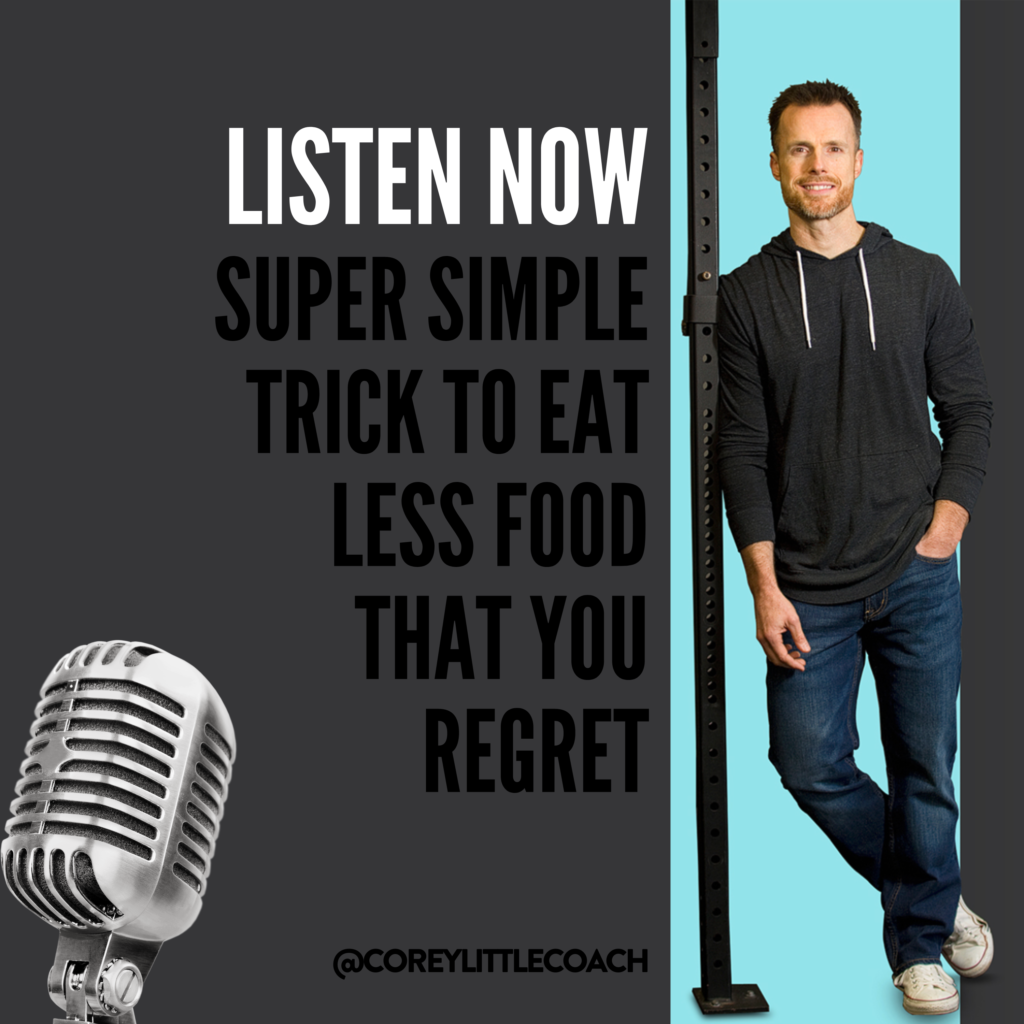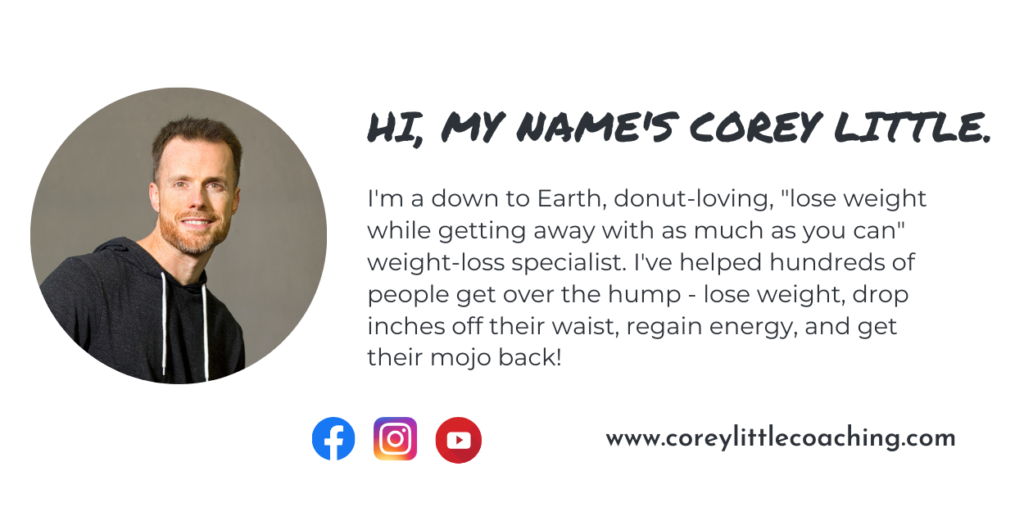
Listen on Spotify | Listen on Apple Podcast
Are you tired of that feeling when you’ve eaten something and then regret it later? That sinking sensation that you didn’t even enjoy what you consumed and now you’re left with a stomach full of remorse? We’ve all been there. But fear not, because in this post I’m going to share a super simple trick to eat less food that you regret!
Super Simple Trick to Eat Less Food That You Regret
The NWI Principle
Many parallels can be drawn between our financial decisions and our choices about what we eat. Just like being in financial debt means owing money for past purchases, being overweight can be likened to being in health debt, where we owe our bodies for past indulgences.
To help you make better food choices, I want to introduce you to the NWI principle, “Not Worth It.” This three-letter acronym can be a powerful tool in your quest to eat healthier and avoid regrets. So, how does this principle work, and how can it help you eat less food you’ll regret?
Let’s break it down.
Is It Worth It?
When you’re faced with a tempting food choice, be it at a party, a dessert table, or a work event with donuts, ask yourself this question: Is it worth it? Here’s where the financial parallel comes in handy. Think about shopping for a new shirt. You find one you like, but when you check the price tag, it’s way out of your budget. You decide it’s not worth it and move on.
On the other hand, imagine you’re shopping for a family vehicle. It’s a bit pricey, but it offers the space, safety, and reliability you need. You decide it’s worth the investment. Now, apply this concept to food. Certain foods are special, rare, or something you genuinely love. These are the ones that may be “worth it” in terms of the calories and indulgence. Others are just okay, readily available, and don’t hold a special place in your heart. These are your NWI foods.
Personal Examples of NWI
Let’s put this into perspective with some personal examples:
NWI List:
- Cheesecake
- Apple pie
These desserts may be fine, but they don’t excite you. They’re not “worth it” in terms of the calories and sugar they pack.
Worth-It List:
- Bourbon Vanilla Pecan Pie with Salted Caramel Cream
- Homemade coconut cake from your 90-year-old great-aunt
- Homemade hummingbird cake from your 88-year-old grandmother
These desserts are rare, incredibly delicious, and hold sentimental value. They are undoubtedly “worth it.”
Consider These Factors
When deciding whether a food is “worth it” or not, ask yourself: Is this something special or rare? Do I absolutely love this, or do I just like it? If you answer with an emphatic “yes” to either question, then go ahead and savor every bite without guilt or regret. However, if the answer is “no,” it’s an NWI, and you should politely decline.
Applying NWI in Real-Time
You can also use the NWI principle when preparing your plate or during your meal. At social functions, take small portions of unfamiliar foods. If you love them, indulge more. If they’re just okay, don’t finish them. This approach helps you avoid that unpleasant feeling of having consumed unnecessary calories without genuine enjoyment.
Super Simple Trick to Eat Less Food That You Regret.
The Not Worth It (NWI) principle is a simple yet effective tool to help you make healthier food choices and prevent post-meal regrets. By differentiating between what’s genuinely “worth it” and what’s not, you can enjoy your favorite indulgences guilt-free while passing up on the foods that won’t bring you true satisfaction. Remember, it’s not just about losing weight; it’s about gaining a better, more fulfilling life. You’ve got this, and I believe in you.

